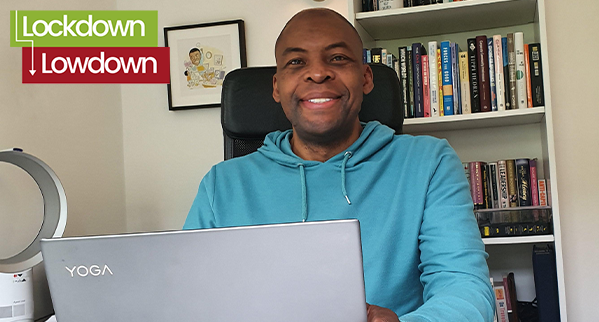Founder and CEO of C&E Advisory Manny Amadi has been described as a ‘responsible business guru’ by The Guardian. In the late 90s, Louise worked for Manny, who was then something of a CSR pioneer. This experience is partly what led her to set up a PR agency specialising in work for charities. They’ve stayed in touch intermittently over the intervening decades, but lockdown gave them the chance to catch up properly.
Business and social purpose
Louise: When we worked together, over 20 years ago, people didn’t talk that much about businesses with a social purpose. Now it seems like everyone is stressing the importance of values and purpose. How have we got here? What have been the main drivers over the years?
Manny: Twenty years ago?! I had to check, but you’re right – and I’m sure I must have been twenty at the time!
Yes, purpose is all the rage for many, if not most leading businesses and I think Covid-19 will, if anything, accelerate the journey. It has been quite a journey as the agenda evolved from philanthropy, Community Investment and CSR through Corporate Responsibility, Shared Value to Sustainable Business and now Purpose-led business. With each step we see leading companies getting closer and closer to placing societal consideration at the very core of business strategy and practice. Essentially, seeking to serve society and create shareholder value in the process of so doing.
“This is entirely, and in my view rightly, fundamentally based on the principle of enlightened self-interest, with the drivers being company and brand responses to various risks, opportunities and values-based factors as companies respond to changing stakeholder expectations.”
I had a certain amount of cynicism back then about some areas of corporate social responsibility. I know for sure that some businesses thought doing a bit of employee volunteering would be enough to tick the CSR box, even if at the organisation’s core it wasn’t doing a whole heap of good for people or planet. Should I feel less cynical now?
A certain amount of cynicism – or at least skepticism – is necessary and healthy. It brings challenge and holds businesses to account for their conduct. So, don’t lose all your skepticism, but you should be feeling less cynical. Just like human beings and every living organism, businesses and brands are not perfect. Many are on a journey of change and are delivering greater value to society as a result – managing their negative social and environmental impacts and proactively seeking to make positive contributions to the world around them, in their bid to enable the creation of sustainable shareholder value.
So has an increase in Sustainable Business activity (and spend) in the commercial world had a tangible benefit?
Yes, definitely. For specific businesses who have created value by e.g. mitigating risks in their supply chains, finding opportunities through new or enhanced markets and products, or attracting and retaining talent in a competitive landscape. The proof of its value is becoming more and more explicit. For example, Unilever has worked very hard over 10 years on a Sustainable Living Plan which involves change for the whole organisation. 70% of Unilever’s revenue in 2017/18 came from the brands that have a clear social mission or purpose such as enabling people to wash their hands and promoting good hygiene.
Value is also being created for society. As the UN’s Sustainable Development Goals (SDGs) recognise, companies have a key role to play by helping to tackle some of the world’s greatest challenges, and creating shareholder value. An example close to home, Tesco and WWF are engaged in a major strategic partnership with the aim of halving the environmental impact of the average shopping basket in the UK. Macmillan Cancer Support and Boots are helping thousands of people in the UK affected by cancer. These are tangible promises and benefits for brands and for society.
What do you think will be the main trends in Responsible Business for the next decade, given current social, political, environmental and health issues?
We are seeing lots of evidence that even as they look to survive the challenges wrought by Covid-19, many leading companies are committing even more deeply to purpose and the responsible business agenda as they seek to #buildbackbetter. This is in response to those fundamental drivers I mentioned earlier.
Each year you produce The C&E Corporate-NGO Partnerships Barometer, assessing drivers and barriers, and trends and forecasts. After your 10th anniversary edition last year, what will be the focus topics for 2020?
Again, I can’t believe we’re about to produce our 11th edition. How time flies! Obviously, because it’s a barometer, most questions recur annually, so that we can track changes year on year, and over time.
“We then have special topics which this year absolutely presented themselves: the impacts of Covid-19 and #BlackLivesMatter on the cross-sector partnering agenda will feature very strongly this year.”
We’re just going out with field work this week, so I’m looking forward to seeing what the collective view of corporate sustainability and NGO partnering professionals will reveal this year!

